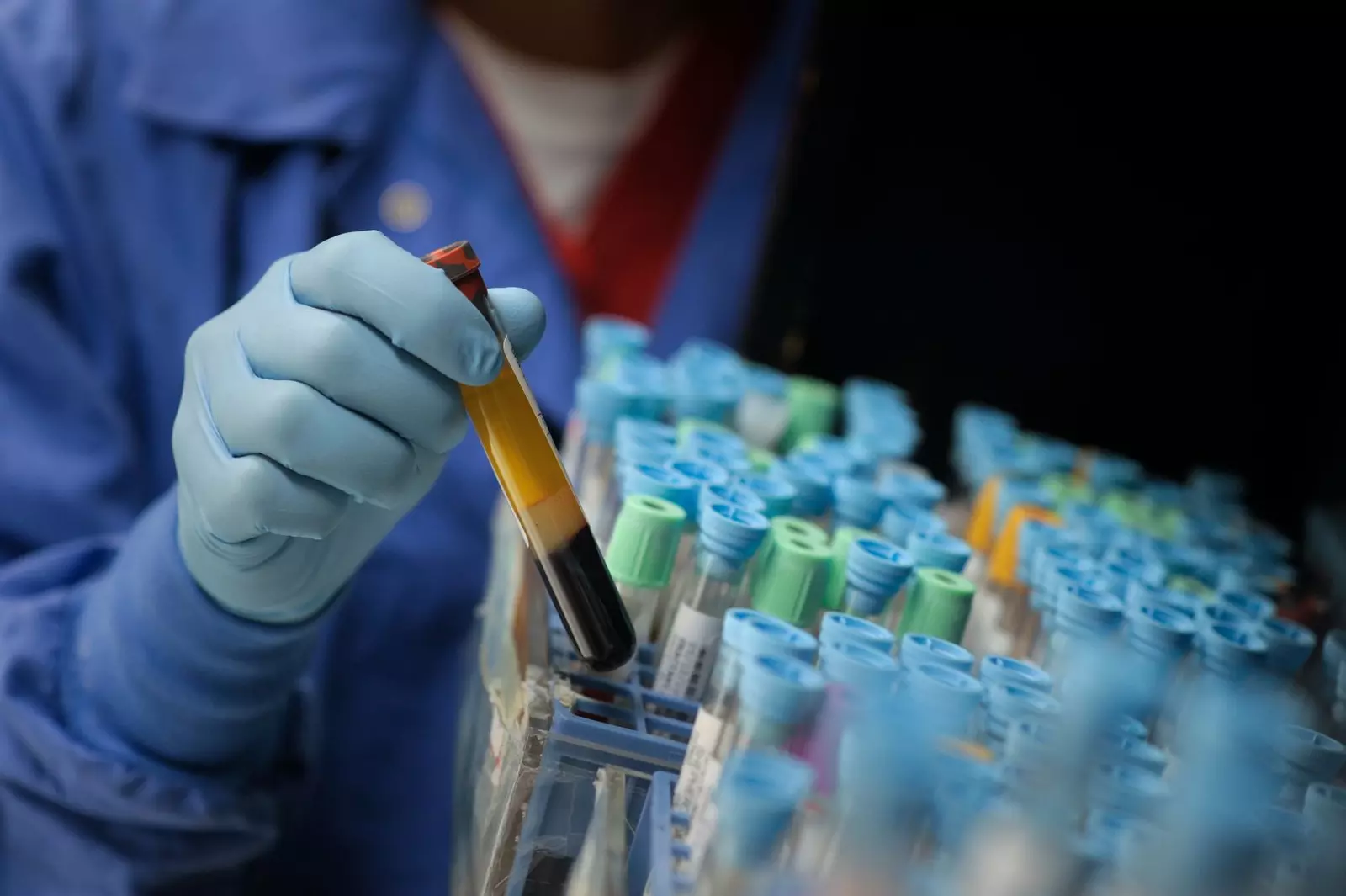- Megan Paquin

From stiffness to a small tremor or speech changes, the signs of Parkinson’s disease are diverse and often subtle. Although Parkinson’s disease cannot be cured, early detection of the progressive nervous system disorder can make a dramatic difference in helping control symptoms. Scientists at the AdventHealth Translational Research Institute are working on diagnostic advancements to help more patients before they experience significant nervous system damage.
Kirk Erickson, Ph.D., director of translational neuroscience at AdventHealth’s Central Florida Division, was recently part of a research team that has developed a blood test that detects an indicator of Parkinson’s disease. Based on earlier studies that associated mitochondrial DNA damage with an increased risk of Parkinson’s disease, Erickson, as part of a team led by Duke Health, helped develop an assay, or testing procedure, that successfully measures higher levels of mitochondrial DNA damage in blood cells collected from patients with Parkinson’s disease compared to people without the disease. The newly developed test also identified high levels of the damaged DNA in the blood samples of those with the LRRK2 genetic mutation, which has been associated with an increased risk of the disease as well.
"Our research continues as we hope to be able to detect the disease even before our patients present with symptoms."
So, what does this mean for those most at-risk for Parkinson’s disease? Once the test becomes available, future patients may experience shorter wait times to be diagnosed with the disease, enabling potentially greater access to medications and other therapies that may ease symptoms and delay progression.
“This breakthrough is a game-changer,” said Erickson. “Currently, a diagnosis of Parkinson’s disease takes time as it is based on a patient’s medical history, along with a physical and neurological exam. This process is compounded by the fact that many symptoms of Parkinson’s disease can go unnoticed as they begin to affect the body’s nervous system. With a simple blood test, our aim is to reduce the time to diagnosis and help patients get the critical care they need to live longer and more comfortably with Parkinson’s disease.”
Erickson added, “Our research continues as we hope to be able to detect the disease even before our patients present with symptoms.”
The Duke Health team that spearheaded this research was led by senior author Laurie Sanders, Ph.D., an associate professor in Duke School of Medicine’s departments of neurology and pathology and member of the Duke Center for Neurodegeneration and Neurotherapeutics. The research received support from numerous international organizations. To read the study, please visit Science Translational Medicine here.
Recent News
St. Luke's Hospital in Columbus, North Carolina, had been planning to ink a management agreement with AdventHealth, one of the nation's largest health systems, for months. But just days before the...
AdventHealth President and CEO Terry Shaw has been named one of Modern Healthcare’s 100 Most Influential People in Healthcare for 2024, marking continued recognition of Shaw as a transformative leader...
AdventHealth has named Elise MacCarroll-Wright as president and CEO of UChicago Medicine AdventHealth Hinsdale in its Great Lakes Region, effective Jan. 6, 2025.
AdventHealth has named Dave Tkachuck president/CEO for UChicago Medicine AdventHealth La Grange, effective Jan. 6.
A UChicago Medicine AdventHealth neurologist addresses the growing gap between the number of men and women diagnosed with MS.
AdventHealth has named Ryan Quattlebaum president/CEO for AdventHealth Wesley Chapel, effective Dec. 29.
Wangsness has more than 30 years of experience in health care.
‘Imagine Wholeness’ features the Grammy-winning group Take 6 and the AdventHealth Orchestra.
Bejarano will assume leadership on Dec. 15, 2024.
The 25th anniversary of ‘To Err is Human’ provides an opportunity to reflect on key learnings that have shaped the hospital system’s culture of safety.
AdventHealth has achieved the top spot on the Gartner Healthcare Supply Chain Top 25 for 2024.
Stories of support between AdventHealth patients and doctors showcase a healing circle of care.












